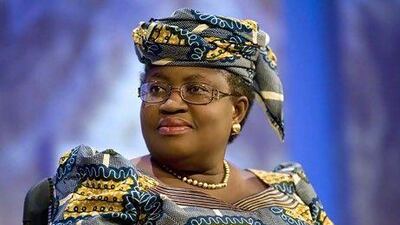The selection of a successor to Robert Zoellick as president of the World Bank was supposed to initiate a new era of open meritocratic competition, breaking the traditional hold that the United States has had on the job. Indeed, Mr Zoellick's own appointment was widely regarded as "illegitimate" from that perspective. But Barack Obama, the US president, has let the world down even more distressingly with his nomination of Jim Yong Kim for the post.
To begin with, it should have been clear that a most remarkable candidate - Ngozi Okonjo-Iweala - was already at hand. She has impressive credentials: degrees in economics from Harvard and MIT, experience working on a wide variety of development issues as a managing director of the World Bank, and stints as finance minister and foreign minister of Nigeria. She also possesses and has amply demonstrated that rarest of qualities: a willingness to fight corruption at the expense of her job.
Moreover, Ms Okonjo-Iweala is witty, articulate and no wimp when it comes to taking on shoddy arguments. She is a dream candidate to lead the World Bank.
What then, does Mr Obama's choice tell us about the sincerity of his feminist rhetoric? Does he draw the line wherever it suits him? In fact, if Mr Obama and his advisers could not stomach Ms Okonjo-Iweala on the ground that she is not American, surely they could have nominated an American woman who was also vastly superior to Mr Kim for the job.
At least two come to mind: Laura Tyson (my former MIT student), who chaired the President's Council of Economic Advisers under Bill Clinton, and Lael Brainard, who is both a superb scholar and is now undersecretary of the Treasury for international affairs.
Perhaps Mr Obama believed that picking Mr Kim, a Korean-American and public-health specialist who is currently president of Dartmouth College, would advance his immediate security agenda in Seoul (where he arrived immediately after announcing the nomination), as well as America's medium-term economic agenda in Asia. But one may well ask: is what is good for the US necessarily good for the world?
In the same vein, American backing for South Korea's Ban Ki-moon to become the United Nations secretary general has delivered what the US wants on international economic issues. Whereas Mr Ban's predecessor, Kofi Annan, was independent enough to endorse efforts to conclude the Doha Round of global trade negotiations, and advance a global compact on immigration (I advised him on both issues), the Obama administration has shied away from these issues. So has Mr Ban.
But perhaps the most compelling factor in Mr Obama's choice seems to have been a fundamental misunderstanding of what "development" requires. Micro-level policies such as health care, which the Obama administration seems to believe is what "development" policy ought to be, can go only so far. But macro-level policies, such as liberalisation of trade and investment, privatisation, and so forth, are powerful engines of poverty reduction; indeed, they are among the key components of the reforms that countries such as India and China embraced in the mid-1980s and early 1990s.
Such reforms turned these countries from stagnation to stellar growth. The anti-reform lobbies reacted by arguing that poverty and inequality had worsened. But new empirical studies show otherwise: growing economies benefit the poor not because wealth "trickles down" but because growth "pulls up" those at the bottom.
In fact, it is the rapid acceleration of economic growth in the major emerging countries that has reduced poverty, not only directly, through jobs and higher incomes, but also by generating the revenues governments need to undertake the public-health, education, and other programmes that sustain poverty reduction - and growth - in the long term. India followed this path. So did Brazil's former president, Luiz Inácio Lula da Silva - after the reforms undertaken by his predecessor produced the revenues that could then be spent on programmes to aid the poor.
The problem with Mr Kim, and presumably with the Obama administration's development experts, is that they do not understand that successful development requires big-payoff, pro-reform, pro-growth policies, not just small-payoff, micro-level policies. Bangladesh has gone down that road, substituting such policies for macro-level reforms and is developing at a far slower pace than India.
Mr Kim is hardly likely to understand this dynamic. A decade ago, he cheered on the tirades against "neo-liberal" reforms that, in fact, were the harbingers of higher growth and lower poverty around the world. The World Bank presidency should not be an apprenticeship.
Jagdish Bhagwati, a professor of economics and law at Columbia University and a senior fellow in international economics at the Council on Foreign Relations, is the author of In Defense of Globalization
* Project Syndicate

